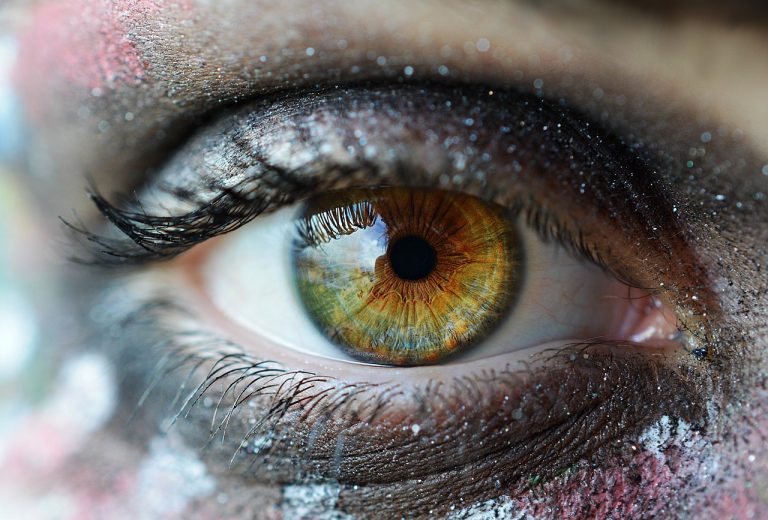To Love Others You First Must Love Yourself
Popular culture is focused on attracting love, yet you’ll only be able to receive as much love as you give to yourself. You’ll deflect or guard love that doesn’t resonate with you – like a compliment you don’t believe. The opposite is also true. You’ll allow others to abuse you a bit less than you abuse yourself. So if you desire lasting love, learn to love yourself, because your relationships will parallel your relationship with yourself.

The subject of love interested me from an early age after reading Erich Fromm’s The Art of Loving. I was still young and unconscious of my feelings about myself. For years, the concept of loving myself eluded me. Like many on a spiritual path, I became very good at compassion for others, but had no idea what self-love meant. Little by little, I’ve learned that it starts with self-esteem, self-acceptance, and finally compassion and love – all progressive stages.
Self-esteem
Most people determine their worth based upon other-esteem. They seek approval and validation from others, and their opinion of themselves isn’t very high unless they get it. True self-esteem isn’t based on what others think of you, since its Self-esteem. It’s basically what you think of yourself. You may think well of yourself and your competence in some areas, but not in others, and your estimation may fluctuate with illness and life’s ups and downs, but if you have good self-esteem, you’ll return to feeling good about yourself. You won’t blame yourself, nor take others’ opinions or what fate throws you too personally. You’ll think you’re an okay person despite losses, ill heath, mistakes, and rejection. Many people focus on their flaws and have trouble acknowledging their assets. Others have inflated, unrealistic opinions of themselves. Studies contend that narcissists have high self-esteem. I say they lack true self-esteem, because when a major loss occurs, their self-esteem can plummet, especially if it’s in areas that support their self-concept, such as beauty, public acclaim, or material success. The biggest obstacle to self-esteem is self-criticism.
Self-Acceptance
Unlike self-esteem which varies, self-acceptance is steady and unconditional. You accept yourself despite your flaws, failures, and limitations. You’re more self-forgiving and let go of self-judgment. Instead of comparing yourself to others, both positively and negatively, you appreciate your singular individuality. You feel that you’re enough without having to improve upon yourself.
Self-acceptance works wonders. Once you start accepting yourself, you gradually stop worrying what others think and become more spontaneous and natural. Self-acceptance is what allows you to be authentic. You can finally relax, and allow more of the inner, real you to be seen. You’ll have no shame or fear of revealing yourself when you accept yourself unconditionally. This is the key to intimacy and spiritual relationships and enables you to accept others.
Self-Love

Whereas self-esteem is an evaluation and acceptance is an attitude, love combines both feeling and action. Contrary to what many believe, self-love is healthy. It’s neither selfish, nor self-indulgent, and neither egotism, nor narcissism.
Actually, egotists and narcissists don’t love themselves at all. A “big ego” is compensation for lack of self-love. Most people think too little of themselves, not too much, and often falling in love is merely a compensation for inner emptiness, loneliness, and shame. No wonder most relationships fail (including those who stay together). Erich Fromm correctly pointed out that love is an art form that takes dedication and practice, not something you win or fall into. Rather, being able to love is a faculty to be developed. It entails effort and begins with learning to love yourself.
From contended that Western society has been influenced by the Calvinist belief that we’re basically sinful, and thus self-love was considered sinful. But since the Bible says, “Love thy neighbor as thyself,” how can loving your neighbor be a virtue and self-love be a vice? You’re part of humanity as worthy of love as the next person. Many kind or religious people are able to love others, but unable to love themselves. They believe having a high regard for themselves is indulgent, conceited, arrogant, or selfish. The opposite is true. The greater is your love of self, the greater will be your love of others. The inverse is also true; hatred of others is indicative of self-hatred.
When you love someone, you try to understand their experience and world view, although it differs from your own. You offer your attention, respect, support, compassion, and acceptance. Your caring involves knowledge, responsibility and commitment. These virtues are not compartmentalized, because love is indivisible. Thus, as you develop these abilities, your capacity to love yourself and others grows.
Developing the faculties of attention and compassion necessitate discipline and time. To learn anything requires that you desire it and find it worthy of your effort. Although self-love is certainly an important goal, our society is full of distractions, and its emphasis on speed, performance, and productivity make developing self-love a challenge. Meditation, yoga, martial arts are helpful in learning self-awareness and focusing attention.
Compassion for yourself enables you to witness your feelings, thoughts, and actions with acceptance, caring, and understanding as you would when empathizing with another. Compassion is expressed with gentleness, tenderness, and generosity of spirit – quite the opposite of self-criticism, perfectionism, and pushing oneself. When most people are stressed, overwhelmed, or exhausted, they attempt to do even more, instead of caring for themselves. If you weren’t nurtured as a child, self-nurturing can be absorbed in therapy over time. You’ll learn to integrate the acceptance and empathy offered by your therapist. Self-compassion differs from self-pity, which is a judgment about your situation or feelings. Rather than acceptance and compassion, self-pity says, “It shouldn’t be this way.”
From states that self-love entails faith and courage to take risks and overcome life’s setbacks and sorrows. Faith in yourself enables you to comfort yourself and face challenges and failures without lapsing into worry or judgment. You develop the ability to see yourself objectivity and know you’ll survive, despite present emotions. If you constantly seek validation and reassurance from others, you miss the opportunity to develop these internal functions. As knowledge is pre-requisite to love, spending time alone with yourself is essential to identify and listen to your feelings with sensitivity and empathy. Acquiring the ability to witness and contain your emotions are also faculties learned in psychotherapy.
Perhaps you’ve concluded that learning self-love isn’t easy. Look at it this way. Throughout the day, you’re confronted with many opportunities to disregard or attune to your feelings, to judge or to honor them, to keep commitments and be responsible to yourself, and to act in accordance with your needs, values, and feelings. You have an opportunity to learn self-love all the time. Every time you talk yourself down, doubt yourself, exhaust yourself, dismiss your feelings or needs, or act against your values, you undermine your self-esteem. The reverse is also true. You might as well make healthier choices, because you and all your relationships will benefit.
By Darlene Lancer, JD, MFT
Source: http://www.whatiscodependency.com/your-primary-spiritual-relationship-love-for-yourself/







